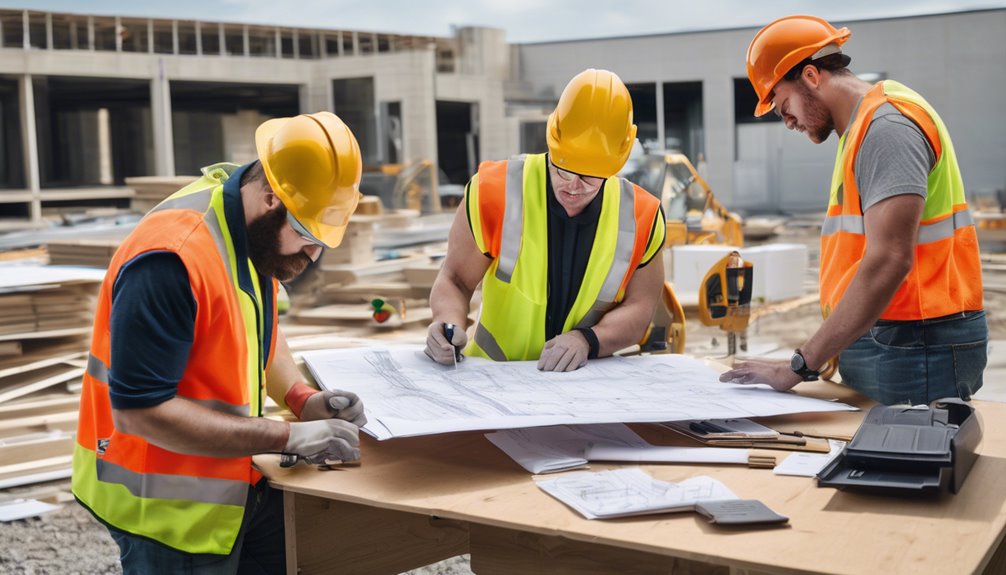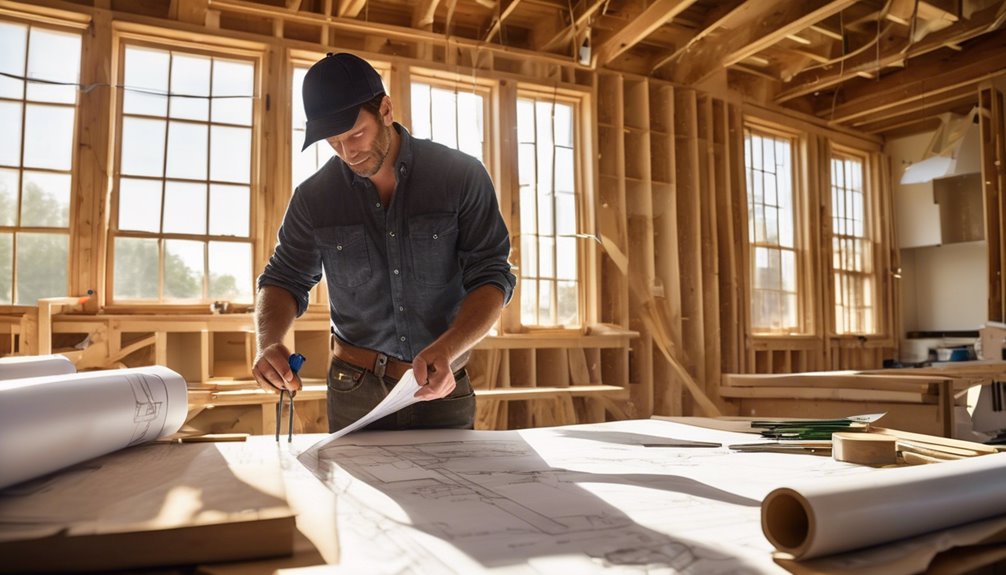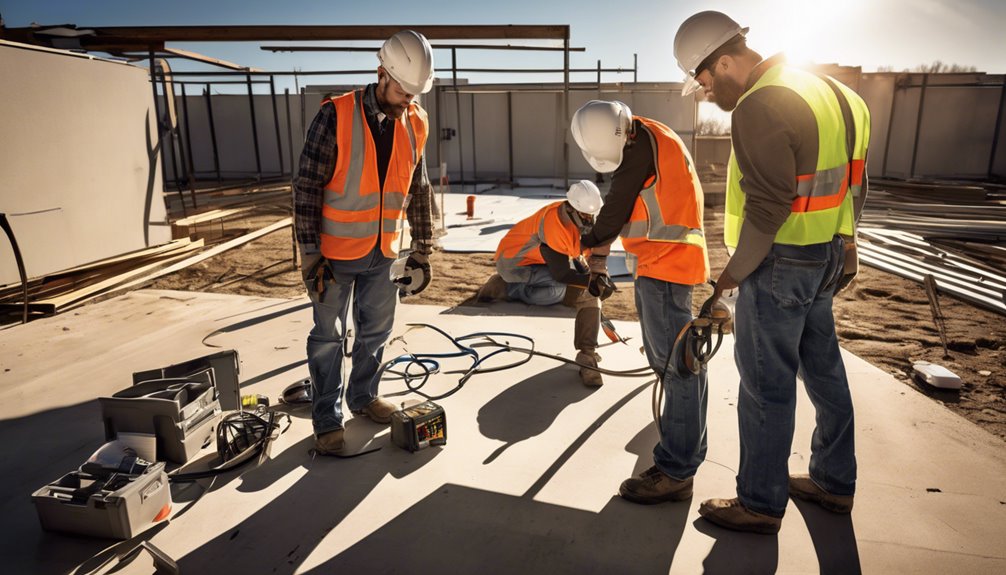Get an Instant Quote on Contracting, Plumbing, Electrical HVAC Contractor General Contractor Bond
In the world of contracting, compliance isn’t just a box to check; it’s essential for the safety and success of your projects. Whether you’re a plumbing, electrical, HVAC, or general contractor, understanding local regulations is crucial. It’s not just about following the rules; it’s about protecting your work and your reputation. Let’s explore how you can effectively navigate these compliance challenges and keep your projects on track.
Understanding Compliance in Construction Projects

When you dive into construction projects, understanding compliance isn’t just important; it’s essential for success. Compliance involves adhering to various regulations, standards, and guidelines that govern your work.
You need to familiarize yourself with local, state, and federal laws that can impact your project. This means staying informed about labor laws, environmental regulations, and safety standards. Ignoring compliance can lead to costly fines, project delays, or even legal issues.
It’s crucial to keep accurate records and documentation to demonstrate compliance throughout the project lifecycle. By prioritizing compliance, you not only protect your business but also enhance your reputation in the industry.
Ultimately, a solid understanding of compliance helps ensure your projects run smoothly and efficiently, allowing you to focus on delivering quality work.
The Importance of Local Building Codes

Understanding local building codes is crucial for your projects.
These regulations not only ensure safety but also help you avoid costly penalties for non-compliance.
Staying informed about these rules can save you time and money in the long run.
Understanding Building Regulations
Local building codes play a crucial role in ensuring safety and compliance in construction projects. They set the standards you must follow, addressing everything from structural integrity to electrical safety.
By understanding these regulations, you can avoid costly mistakes and ensure your work meets local expectations. Each jurisdiction has its own codes, so it’s vital to familiarize yourself with the specific requirements in your area.
This knowledge not only helps you stay compliant but also protects the health and safety of occupants. Always consult local authorities or licensed professionals when in doubt.
Consequences of Non-Compliance
Failing to comply with building codes can lead to severe consequences that affect both your project and your reputation.
Ignoring these regulations isn’t just a minor oversight; it can have lasting impacts.
Here’s what you risk:
- Legal penalties: You may face fines or lawsuits from local authorities or clients.
- Safety hazards: Non-compliance can result in unsafe structures, putting lives at risk.
- Project delays: You might need to redo work to meet compliance, slowing down timelines.
- Loss of business: A tarnished reputation can lead to fewer clients and lost contracts.
Roles and Responsibilities of General Contractors

General contractors play a pivotal role in the construction process, acting as the main point of contact for clients and subcontractors alike.
You’re responsible for planning, coordinating, and overseeing the entire project from start to finish. This means managing schedules, budgets, and resources effectively. You’ll also ensure that subcontractors deliver quality work on time and within budget.
Communication is key; you’ll need to keep clients informed about progress and any issues that arise. Additionally, you must secure necessary permits, ensure compliance with regulations, and maintain safety standards on-site.
Ensuring Compliance With Plumbing Standards
Ensuring compliance with plumbing standards is crucial for the success of any construction project, as it directly impacts both safety and functionality.
You’ll need to familiarize yourself with local codes and regulations to avoid costly mistakes. Here are some key areas to focus on:
- Material Selection: Use approved materials that meet industry standards for durability and safety.
- Installation Practices: Follow best practices for installation to prevent leaks and ensure system efficiency.
- Regular Inspections: Schedule inspections at critical stages to catch potential issues early.
- Documentation: Keep detailed records of compliance efforts, including permits and inspection reports.
Navigating Electrical Compliance Regulations
When you’re working with electrical systems, understanding local codes is crucial for compliance.
You can’t overlook the importance of safety standards, as they protect both you and your clients.
Plus, navigating the permitting and inspections process will help ensure your projects run smoothly and meet all regulatory requirements.
Understanding Local Codes
Navigating local electrical codes can feel overwhelming, especially since these regulations vary widely from one area to another.
To ensure compliance, you need to familiarize yourself with your local requirements. Here are some key points to consider:
- Research local authorities: Identify the governing body that oversees electrical installations in your area.
- Check for updates: Local codes can change; stay informed about any amendments or revisions.
- Understand permit requirements: Know what permits are necessary before starting any electrical work.
- Consult professionals: Don’t hesitate to reach out to licensed electricians or code consultants for guidance.
Safety Standards Importance
Understanding local codes is just one piece of the puzzle. Safety standards play a vital role in ensuring that your electrical work complies with regulations and protects both you and your clients.
When you adhere to these standards, you minimize risks like electrical shocks, fires, and system failures. Compliance isn’t just about following rules; it’s about promoting a safe environment for everyone involved.
You need to stay updated on the latest safety regulations and best practices. Regular training and workshops can help you maintain compliance and ensure your skills are sharp.
Permitting and Inspections Process
The permitting and inspections process is crucial for ensuring your electrical projects meet compliance regulations.
Navigating this process helps you avoid costly delays and fines. Here are some key steps to keep in mind:
- Research local regulations: Understand your area’s specific requirements before starting any project.
- Submit necessary applications: Fill out and submit all required forms to the appropriate authorities to obtain permits.
- Schedule inspections: Coordinate with local officials to conduct inspections at various project stages.
- Address feedback promptly: If inspectors provide recommendations or corrections, address them quickly to stay on track.
HVAC Compliance: What You Need to Know
How can you ensure your HVAC systems meet compliance standards? First, familiarize yourself with local codes and regulations, as these can vary significantly.
Check if your equipment meets the Seasonal Energy Efficiency Ratio (SEER) and Energy Efficiency Ratio (EER) requirements. Always use licensed contractors for installation and maintenance, as their expertise ensures adherence to safety and efficiency standards.
Don’t forget regular inspections; they help identify potential violations before they become issues. Additionally, keep thorough documentation of all maintenance and upgrades to demonstrate compliance.
Stay updated on any changes in regulations to prevent non-compliance penalties. By taking these steps, you’ll ensure your HVAC systems not only function efficiently but also meet all necessary compliance standards.
Best Practices for Maintaining Compliance Throughout Your Project
Maintaining compliance throughout your project requires a proactive approach from the outset.
To ensure you stay on track, consider these best practices:
- Stay Informed: Regularly update yourself on local codes and regulations.
- Create a Checklist: Develop a compliance checklist that outlines necessary permits and inspections.
- Conduct Regular Training: Train your team on compliance standards and procedures to minimize risks.
- Document Everything: Keep thorough records of all communications, inspections, and approvals to aid in compliance verification.
Frequently Asked Questions
What Are the Penalties for Non-Compliance in Construction Projects?
If you don’t comply with construction regulations, you could face hefty fines, project delays, or even legal action. It’s crucial to stay updated on local laws to avoid these costly penalties and ensure smooth project completion.
How Can I Find Local Building Codes for My Area?
To find local building codes, visit your city or county’s official website. You can also check with local planning departments or libraries, where they often have resources and information about regulations specific to your area.
What Certifications Are Required for General Contractors?
To become a general contractor, you’ll need various certifications, which often include a general contractor license, liability insurance, and sometimes specific trade certifications. Check your local regulations to ensure you meet all necessary requirements.
Are There Specific Compliance Training Programs Available?
Yes, there’re specific compliance training programs available that focus on regulatory standards and best practices. You can find options through industry associations, online platforms, or local workshops tailored to your needs and expertise.
How Often Do Compliance Regulations Change?
Compliance regulations change frequently, often driven by new laws or industry standards. You should stay updated by regularly reviewing relevant resources and participating in training sessions to ensure you’re always in line with the latest requirements.
Conclusion
In conclusion, staying compliant is essential for your success as a contractor. By understanding local building codes and adhering to plumbing, electrical, and HVAC regulations, you protect your projects and your reputation. Make compliance a priority throughout your work, from securing permits to maintaining accurate documentation. By doing so, you not only avoid costly penalties but also ensure the safety and integrity of your projects, paving the way for successful outcomes and satisfied clients.
